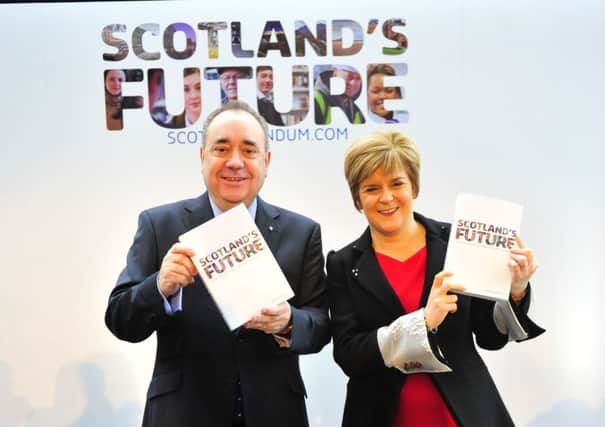Brian Monteith: Time for politicians to get on with their jobs


There are some people who view the Rio Olympiad as an obscene waste of money or a pointless exercise where even the liberally minded BBC is able to wear its jingoistic heart on its sleeve. I have enjoyed it more than I thought possible, partly because of the individual and team efforts that could be admired irrespective of the flag competitors were flying, and partly because it was a welcome distraction from the never-ending politics since the London Olympics.
There has not been a time since 2012 when the prospect of Scotland’s independence referendum or the UK’s general election and subsequent EU referendum has not been at the heart of political calculations. For too short a time have I been able to relax, cuddle my first grandchild, smoke some Cuban cigars, drink some fine French wines and busy myself in the kitchen.
Advertisement
Hide AdAdvertisement
Hide AdSadly, I must now refocus on the coming political theatre where, like some Groundhog Day, I find the core disputation is whether or not we should have second independence or EU referendums. I am sure I speak for many people when I say it is time for our politicians to get on with their real jobs and, to the extent that they can influence anything, run the country.
A second independence referendum any time soon is a bad thing for Scotland’s economy. The soundings I take from businesses suggest a premium is placed upon investing in Scotland due to the uncertainty from independence remaining a possibility. This provides a downward pressure on job security and more so on job creation. I know of real examples of this in Scottish business life, but commercial interests mean businesses cannot talk openly about them for fear of making difficulties worse – just like how one person’s bad experience can cause a run on a bank.
Ironically a second independence referendum is not in the interests of the SNP, for everyone but the most sycophantic follower of the First Minister’s sabre-rattling threats to instigate a further vote expects that it would be lost, and lost badly. The SNP has now finally admitted that its White Paper was flawed but it is a very long way from having replaced it with a new blueprint.
After all this time it is still unclear what currency an independent Scotland would have, with five possibilities remaining on the table. The Euro? Maybe. Sterling, officially or unofficially? Still likely, but less so than in 2014. Or a new Scottish Groat, pegged to Sterling or floating freely? Now being considered but requiring huge amounts of currency reserves few wish to concede to.
Other questions over an independent Scotland’s place inside the EU, outside and free, or outside and associated like Norway, have not been thought through.
The questions of currency and EU membership are huge for they will directly impact on jobs and could mean the first hard border between Scotland and England in more than 300 years, with all its attendant disruption to trade and solidarity.
As if these issues are not challenging enough there is the unavoidable difficulty of the Scottish government’s annual deficit of circa £15 billion, which may become higher when the annual GERS figures are published this week. Add to that the estimated national debt of circa £140bn. If Scotland were to walk away from this it would only make it a financial pariah requiring punishing interest rates to borrow on the international markets to service the deficit.
It is in this context of the Scottish Government having had nearly two years to come up with a new improved case for Scottish independence that the SNP’s Europe spokesman Stephen Gethins MP has the impertinence to demand the new government explains its approach to Brexit negotiations since the referendum result of not yet two months ago.
Advertisement
Hide AdAdvertisement
Hide AdSurely we can all agree that had Scotland voted for independence in 2014 there would have been a period when some hard thinking on all sides would have been required. For one thing David Cameron would have been forced to resign and the UK government would have had to compose itself, find a new leader with democratic legitimacy (that could have taken months) and then decide on its negotiating options. Real negotiations about Scotland’s divorce from the UK would not have started in earnest until 2015.
Following the shameful dereliction of duty by David Cameron and George Osborne to prepare any contingency plans for a Brexit vote Theresa May’s UK government is now clearly taking time, as it should, to determine the legal parameters within which it can work. It then must make a judgement about strategy and tactics so that it can command a majority in the Commons.
The choice will be between long negotiations, delayed by French and German elections, which may allow a forthcoming Brexit to become the focus of a general election. Or, alternatively, that the UK government states from the start “No deal is better than a bad deal” and it is willing to trade with the EU and the rest of the world under World Trade Organisation rules.
Such a dose of economic reality would give the UK a position of strength to effect a deal to remove pointless tariffs, while it could occupy the moral high ground by confirming the place of EU nationals already in Britain. Once this choice is made the pace towards Brexit will quicken. If it comes to a race between the UK and Scottish governments to produce their plans for independence I wager Theresa May will win the gold while Nicola Sturgeon is left at the starting blocks.